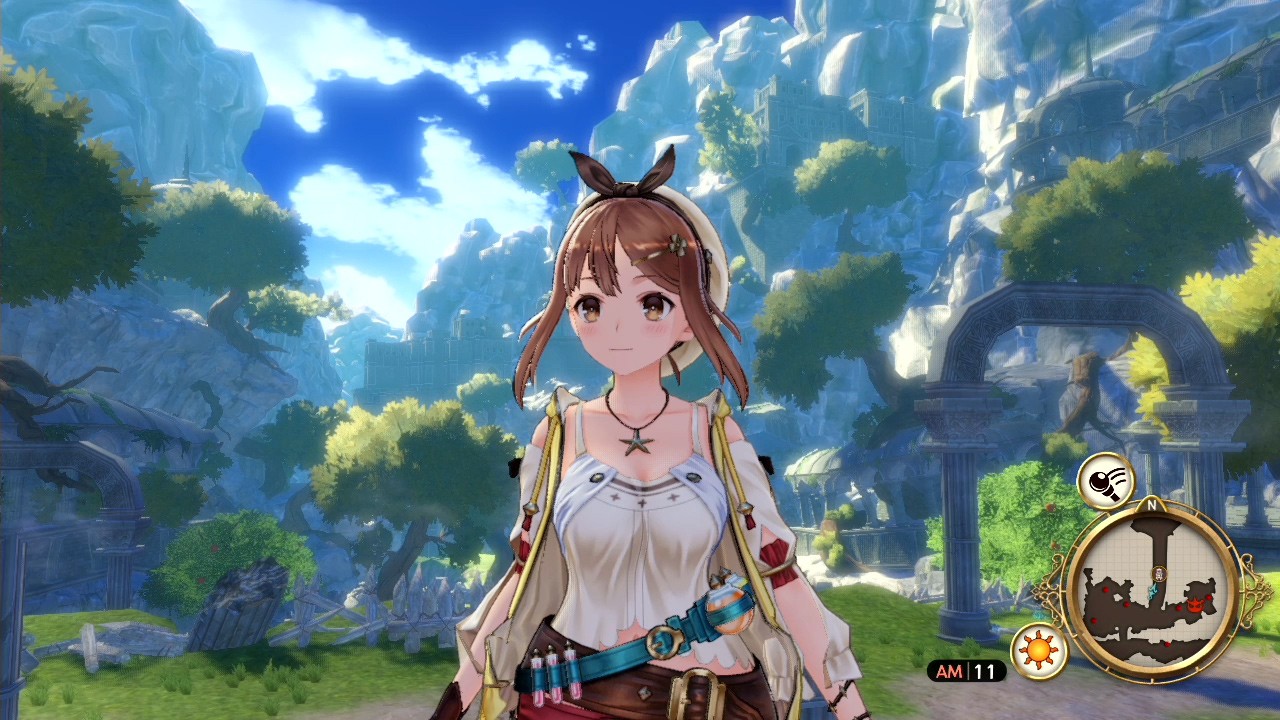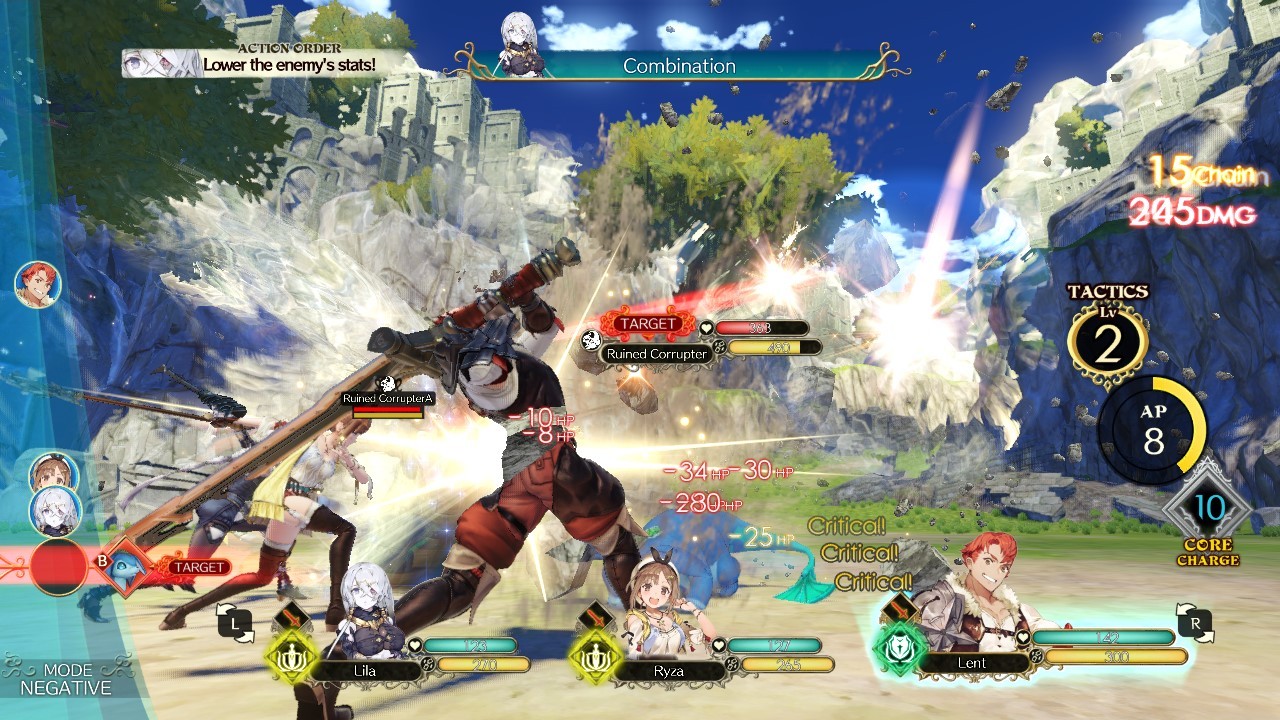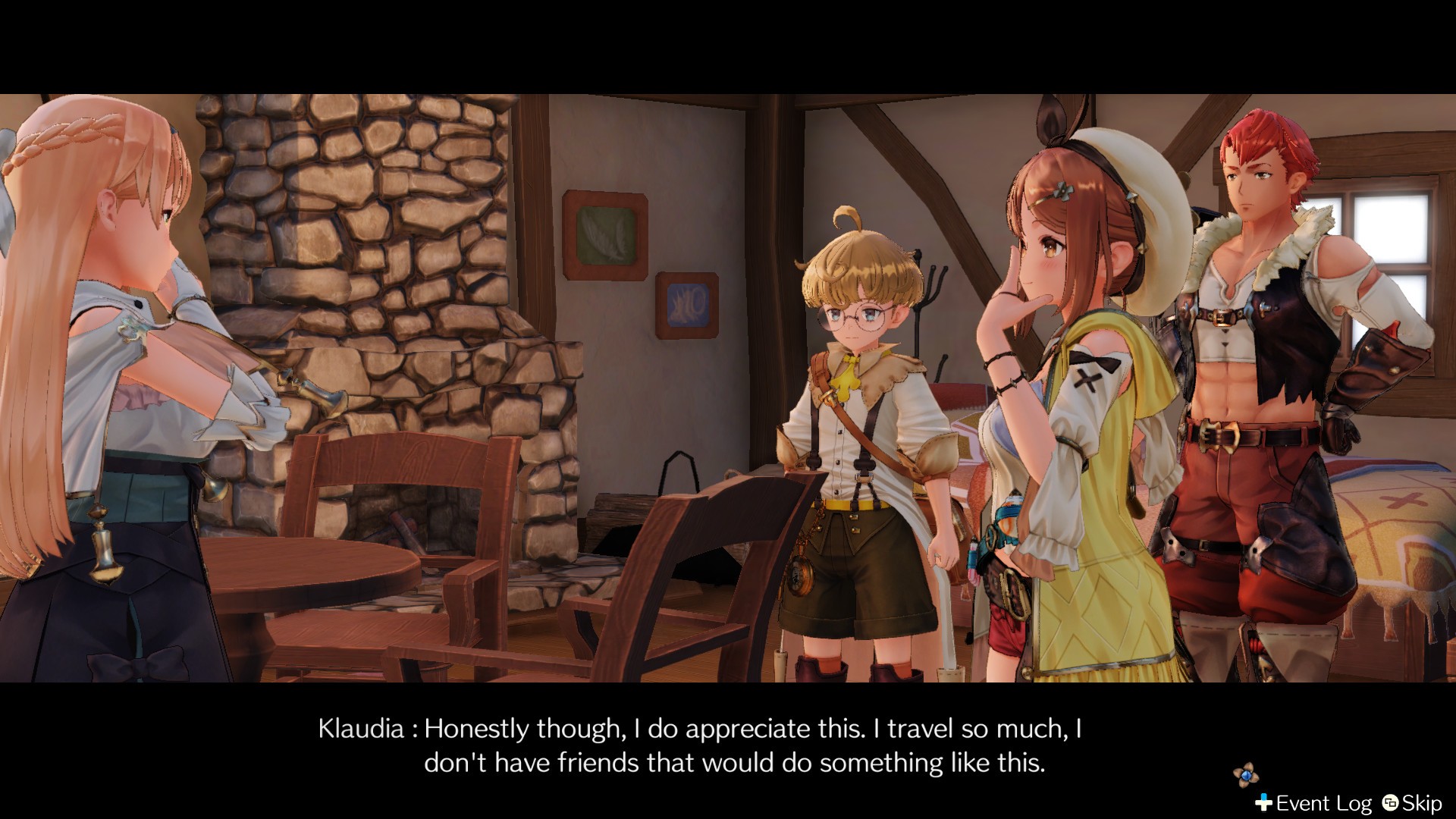
When I first got my Nintendo Switch two and a half years ago, there were many things that I was looking forward to. I was expecting new and exciting entries in familiar franchises, like Mario, Kirby and Metroid, and those have been mostly met. I was hoping to see ports of all those AAA titles my friends were talking about, like Doom and Grand Theft Auto, and we’re working on it, some success but not fully. I was honestly never expecting to see Microsoft jump, feet first, into the pond with Nintendo, but Ori and Cuphead are two of the most played titles on my Switch, and who knows what could be coming next? But never, in my wildest dreams, did I think I would end up getting hooked on a series of cute RPGs that were so heavily focused on things like collecting, crafting and timed events. Well, I’ve had the honor and the privilege of playing six of the Atelier titles to date (I grabbed Lydie & Suelle in my free time), and each one has brought some kind of fascinating aspect with it, even the ones that felt like they went wildly off the rails. Which is why I feel that I have the insight and history to say that the latest creation from KT and GUST is, hands down, the best in the series so far. Welcome to the beautiful, expansive and addicting world of Atelier Ryza: Ever Darkness & the Secret Hideout.
From the very beginning, players should be familiar with key tropes from the series. Our main character has an impossibly strange and European full name, Reisalin Stout, but her friends and everyone else calls her Ryza. Ryza lives in Rasenboden Village, a picturesque hamlet of a locale centered on Kurken Island, renown for their local fruits and idyllic lifestyle, and Ryza is positively losing her mind at the quaintness of it all. She spends her carefree days with her best friends, Lent (a giant teenager with dreams of heroic battles) and Tao (a bookish and shy boy who springs to life at the thought of academic investigation). One day, a merchant ship comes to visit and collect some of the island’s fruits for sale, but the boat brings two surprises. The first is the merchant’s daughter, Klaudia, who instantly bonds with Ryza and shares her thirst for adventure. The second are the traveling forces of Empel and Lila, who are an alchemist and warrior, respectively. Ryza is positively smitten with Empel’s ability to create potions to fight off monsters, and Lent wants to be a badass like Lila. Oh, and Lila and Empel are both VERY interested in an ancient book Tao just happens to have, though the exact reasons are purposely hidden from the children initially. With a nudge in the right direction and her first tome to get started, Empel sets Ryza down the path to becoming an alchemist, and thus opening up her dreams (and her friends dreams) of real adventure.
There are many reasons that Atelier Ryza might be the best in the series, or at least is from my perspective. First and foremost, the way the game is introduced to you is significantly more satisfying than a lot of the older entries. Even though the original Arland saga is the most beloved, it’s a rough one to get into with the timed missions out the gate, difficulty in grasping expectations from vague sources and the inherent blockiness of movement that came from the games being originally released on older consoles. Even Lulua, which was a huge step forward in terms of combat and storyline, fell back onto old habits and rehashed a lot of familiar faces to keep people from the previous games on the hook. Not so with Ryza. From the drop, Ryza is introduced as an ordinary girl with big dreams, some good friends, a strong family infrastructure, and a great deal of potential ahead of her. You get to play and even do combat for close to an hour before anyone even mentions alchemy, and it’s an organic step forward into the game. As a result, I get to know Ryza, Tao and Lent in a better way and see their chemistry without needing to think they’re bound by alchemaic roots or battle targets or something like that. They’re friends who all want more out of life (and, with friendship being the running theme of the game, it’s well handled), and they even mesh well with Klaudia once she becomes a more important part of the game.

Additionally, the improvements to the game mechanics are fantastic. Atelier Ryza is stellar in terms of combat, and I really, really appreciate the active battle system. It adds a sense of urgency to the game and makes combat feel like more than a wasted aside between foraging for crafting supplies and standing in front of my cauldron. The incorporation of the AT system means that I’m not worrying about mana or anything like that for additional skills, but being able to invest my points into either items, skills or powering up the combat means that stuff requires fast thinking and strong decision making without giving me a chance to just mess around and waste my time trying to work out in my head what will be the best combatant move against this particular monster or this particular boss. And, yes, like the previous Atelier games, there is a drastic difference between the cute, inoffensive monsters that you get to wail on for a majority of the game and the large, angry beasts that decide to really take you to the mat more than once. Along with the fighting itself, I adore the system where you have the choice to essentially attach a permanent item to your equipment for perpetual use as long as you can “charge” the item (either through sacrificing other items or just good planning). It made the time that I spent grinding out my first real bomb (not that I I bomb, get that weak game outta here) so worthwhile, because Ryza became hilariously OP pretty fast. This does wear off faster than I’d like, though, and I did need to put in legitimate work in leveling and making myself a stronger adventurer.
Now, one of the reasons that Atelier Ryza has gotten so much attention is that there was a fear, distinct shift away form the stereotypically “cute” protagonist we’ve had in the Atelier series and a bit more stock put into the more curvy persona. I’m not going to pretend that didn’t factor into the game’s fantastic initial sales in Japan, but I want to address that the conjecture is purely one sided and put forth by the fans that want to see Ryza in that way, and not the way the game treated her. Sure, there are some selective camera angles that the game takes that puts forth Ryza’s assets more prominently, and it’s a little ridiculous how much she bounces as she runs during cutscenes (this isn’t Dead or Alive). Thankfully, though, that is entirely in the scope of the game to observe however you’d like, and, if you’d prefer, just ignore it. There’s no heavy sexual undertone, no slew of innuendoes a la Gun Gun Pixies or anything like that. Like so many young women growing up, Ryza has a body that’s developed differently, and a majority of the people she interacts with don’t make a big deal out of it because that’s an insane level of objectification to someone who’s just looking to become an alchemist and have an adventurous life. Also, if we want to get technical, Lila’s proportions are far more attention grabbing than Ryza’s, so don’t worry about random keyhole scenes or something like that. Just play the damn game.
Oh, be sure to enjoy Atelier Ryza either with a great pair of headphones or a decent sound system setup at home, because the soundtrack is heads and shoulders and several other body parts ahead of the soundtrack for every other game in the series. Honestly, it might be one of the most robust, atmospheric and absolutely enchanting scores for a video game in a couple of decades, and I’m not exaggerating whatsoever. There is something about the composition that elevates the score way beyond a normal JRPG setup and places it into a dynamic, sweeping world that honestly could go toe-to-toe with certain animated movies. There’s a more significant use of strings and orchestral sounds, occasionally balanced out with more familiar electronic musings and off-kilter sound effects that puts me into Ryza’s perspective of wonder, of excitement and adventure, of the slow growing path from an aimless, dreaming child to a legitimate explorer. It doesn’t hurt that the slow burn of the story seems to swell and arc along with the music, gradually warming the player up from picking grass and grabbing ore to venturing out, finding out secrets and uncovering sinister motivations that you could probably have gathered from early interactions (Klaudia’s arrival on the island was clearly no happenstance). It’s a bit of a trip to get from point A to point B, but the music is there with you, a jaunty, flouncing constant that keeps you firmly in the correct headspace as everything develops.

Lastly, for those concerned about replay value, Atelier Ryza has a massive number of quests to undertake, and they even have different angles of importance between the different characters. Sure, you’ll want to do things to help the party as a whole, but what if we do this quest that specifically helps out Lent and his ambition to become a massive warrior who stands up for the little guy? Or what if we take some time to help Tao discover more about himself and what he brings to the crew, wouldn’t that be nice? The game allows itself to not fragment, but to have multiple facets that make this diamond gleam even brighter, focusing on what it means to be a person who thinks beyond themselves and thinks of others in a positive and still pragmatic sense. You would not believe how far I got into the game and was still finding new materials to harvest, new sequences to synthesize to make even better goods, still coming up with new combinations that made the game even more exciting in the delightful and active combat. I know that it sounds like I’m gushing, but that’s because I am. For the first time since this series was introduced to me, I didn’t find something in this game that made me long for another thing to do instead. There weren’t any chores in the game that felt wasteful (especially not once I realized that you can also BUY materials if you’re scraping for necessary components). The fast travel system works but doesn’t remove all sense of exploration. The towns, landscapes and dungeons have plenty of maneuvering room, aren’t fully open world, but still give you options in movement. People who have stuff to say remain, people who exist for ambience can be walked through, and the game never hesitates to remind you that you can check your ever-growing diary of everything you did since the game became to see where you’ve been and where you’ll be heading next. It just keeps rewarding the player who wants to be here with more and more to see and do without ever getting off the chain of being an Atelier game, and I love it as a result.
There’s no question that Atelier Ryza: Ever Darkness & the Secret Hideout is for the longtime fans, but it really is a fantastic entry point for newcomers and the jaded former players to come back in. The game looks gorgeous, plays wonderfully, has no issues on the Switch and will still bring all the great alchemical action of the series with fewer hang ups and complaints. And yea, if you want to spend your hours fine tuning your own Secret Hideout within the game with decorations, all designs and furniture, be my guest: it wasn’t important for me and I wasn’t punished for not caring after the game introduced the concept. This is a real gift to the gaming community as a whole, and any RPG enthusiast owes it to themselves to see what Ryza can bring in terms of a fantastic experience.
REVIEW CODE: A complimentary Nintendo Switch code was provided to Bonus Stage for this review. Please send all review code enquiries to press@4gn.co.uk.
Subscribe to our mailing list
Get the latest game reviews, news, features, and more straight to your inbox
Thank you for subscribing to Bonus Stage.
Something went wrong.
Atelier Ryza: Ever Darkness & the Secret Hideout Review
-
Gameplay - 10/10
10/10
-
Graphics - 10/10
10/10
-
Sound - 10/10
10/10
-
Replay Value - 10/10
10/10
User Review
( votes)Overall
Summary
Unflagging in tone, action, soundtrack and creativity, Ryza is easily the best Atelier to date.






